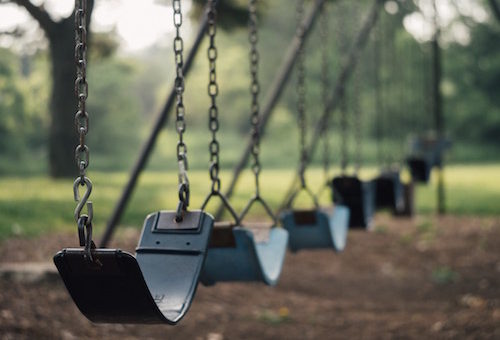 I just returned from Rhinebeck, NY, where I took an intensive professional training course in Mindfulness-Based Cognitive Therapy (MBCT) for the Prevention of Depression Relapse. The five-day course was developed for health-care professionals who already have experience with mindfulness-based approaches.
I just returned from Rhinebeck, NY, where I took an intensive professional training course in Mindfulness-Based Cognitive Therapy (MBCT) for the Prevention of Depression Relapse. The five-day course was developed for health-care professionals who already have experience with mindfulness-based approaches.
Many years ago, I studied Mindfulness-Based Stress Reduction with its developer, Dr. Jon Kabat-Zinn. Since that time, research has continued to demonstrate the effectiveness of mindfulness training in treating many forms of emotional difficulties. Offspring treatments that involve mindfulness as a major component to their treatment protocol include Acceptance and Commitment Therapy (ACT), Dialectical Behavior Therapy (DBT), and Mindfulness-Based Cognitive Therapy (MBCT).
Taking a course in MBCT gave me the opportunity to study with one of the major researchers and writers in the field. It was given by Zindel Segal, PhD, and Susan Wood, MSW, LCSW. Dr. Segal is the author of Mindfulness-Based Cognitive Therapy for Depression: A New Approach to Preventing Relapse, 2002, The Guilford Press.
While the course was valuable and added to my skills in teaching this treatment approach, the highlight of the trip was my excursion to Val-Kill, the unpretentious, comfortable home of Eleanor Roosevelt. Just down the road in Hyde Park, NY, stands the opulent estate of her husband, Franklin Delano Roosevelt. Ms. Roosevelt created her separate home in a style that reflected her sensibilities, not those of her husband. Set among trees and brooks, the house contains simple furniture and cozy, intimate rooms.
I was fascinated to learn that Eleanor Roosevelt was a kind of pioneering blogger extraordinaire. She wrote a daily letter to Americans that came to be called “My Day,” one of the most popular syndicated columns of the time. She wrote her column six days a week, often dictated in any free moment she found. She published over five hundred words per column, at least six days a week for 26 years from 1936-1962. Personal as well as socially relevant, her work communicated her thoughts, joys, and intimate concerns.
As a beginning blogger, I have wondered about my urge to write. In a previous post, I talked about how this form of writing allows me to take my many years as a psychologist and put words to this experience that can go beyond the confines of my confidential private office. Social media has provided a means for anyone to make his or her thoughts and opinions public, taking journaling to a new level—but not an unprecedented one, as I saw by Eleanor’s example.
Pleasant and Unpleasant Events Calendar
I often suggest that my clients journal. Collecting thoughts and feelings by observing them and taking the extra step to write them down allows insights to emerge. In MBCT, one of the first homework exercises is to write a daily note about a pleasant and an unpleasant experience that occurred during the day. By noting the thoughts, feelings, and sensations associated with such experiences, we bring mindful awareness to daily life. This can allow us to experience and appreciate the moment simply as it is, without adding further elaboration in the form of wishing, dreading, or judging. It is often our mental elaboration that triggers rumination, a common symptom in depression. We can begin to realize that even unpleasant events can be tolerated. Bringing awareness to each situation, whether we label it good or bad, is an important step in learning to relate differently to them. This takes practice. And curiosity.
The Fullest Experience of the Adventure of Life
As Eleanor Roosevelt writes in You Learn by Living: Eleven Keys For a More Fulfilling Life, “There is no experience from which you can’t learn something. When you stop learning you stop living in any vital and meaningful sense. And the purpose of life, after all, is to live it, to taste experience to the utmost, to reach out eagerly and without fear for newer and richer experience. . . . The experience can have meaning only if you understand it. You can understand it only if you have arrived at some knowledge of yourself, a knowledge based on a deliberately and usually painfully acquired self-discipline, which teaches you to cast out fear and frees you for the fullest experience of the adventure of life.”
Being attentive to thoughts and writing them down takes discipline. When keeping a journal (or a thought record of daily events, or writing a blog) our life experience is enlarged and enriched. For people struggling with depression, being able to notice even slightly positive things during the day allows them to see that such events are already there for them. For some, it may be noticing the song of a bird, or the stars on a clear night—these simple experiences are always within reach, but for someone who struggles with depression, they go unattended. Writing is a vehicle of self-expression.
References:
Roosevelt, E. (2001). My Day: The best of Eleanor Roosevelt’s acclaimed newspaper columns, 1936-1962. D. Emblidge (Ed.) Cambridge, MA: Da Capo Press.
Roosevelt, E. (2011). You learn by living: Eleven keys for a more fulfilling life. New York: Harper Perennial.
Segal, Z. V., Williams, J. M. G., & Teasdale, J. D. (2002). Mindfulness-based cognitive therapy for depression: A new approach to preventing relapse. New York: Guilford.
 College is a rite of passage, a transition into adulthood. It’s a transition for parents, too, who can no longer sleep in the room down the hall with ears half-cocked and one eye open. It’s all the more important, then, for parents to have conversations with their kids about how to deal with the common, normal changes and stresses likely to arise in these early years of living away from home.
College is a rite of passage, a transition into adulthood. It’s a transition for parents, too, who can no longer sleep in the room down the hall with ears half-cocked and one eye open. It’s all the more important, then, for parents to have conversations with their kids about how to deal with the common, normal changes and stresses likely to arise in these early years of living away from home.



